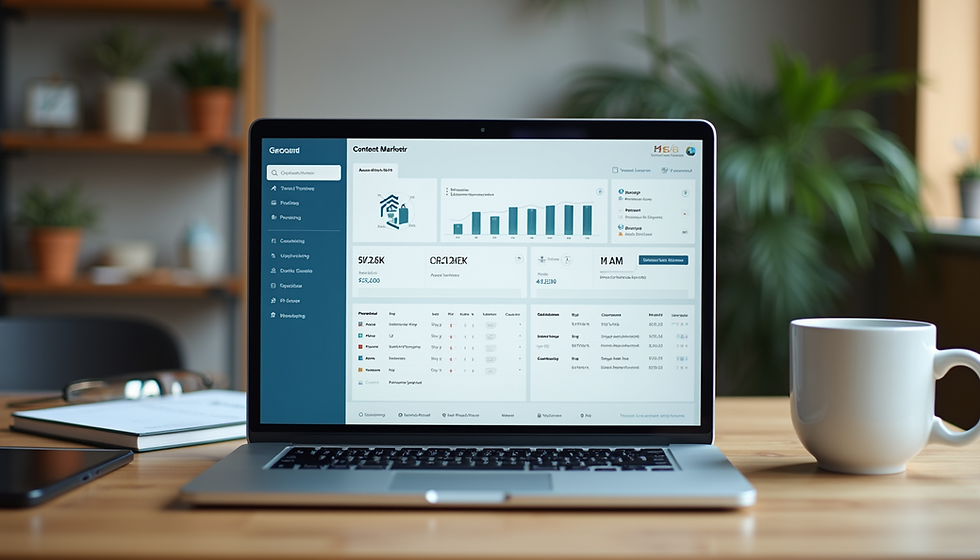Unlocking Success with Data-Driven Marketing
- Audrey Cauton
- Aug 6, 2024
- 3 min read
Updated: Jan 19, 2025
Gone are the days when marketing success was measured by the catchiness of a slogan or the visual appeal of an ad. Today's marketing triumphs are built on a foundation of data analytics, machine learning, and predictive modeling. This shift towards data-driven decision making has democratized the field, allowing smaller players to compete with industry giants by making smarter, more informed choices. The key to success now lies in not just collecting data, but in extracting actionable insights that drive meaningful business outcomes.

What is Data-Driven Marketing?
Data-driven marketing refers to the strategic use of data to inform and guide marketing decisions. This approach involves collecting, analyzing, and interpreting data to understand consumer behavior, measuring campaign performance, and refining marketing strategies. By implementing the power of data, marketers can create personalized experiences, target the right audiences, and maximize their return on investment (ROI).
Benefits of Data-Driven Marketing
1. Enhanced Targeting and Personalization
Data-driven marketing enables businesses to understand their audience on a granular level. By analyzing demographic, behavioral, and psychographic data, marketers can segment their audience and deliver highly personalized content that resonates with individual preferences. This level of personalization fosters stronger connections with customers and increases engagement.
2. Improved Decision-Making
With data as the foundation, marketing decisions are no longer based on assumptions or guesswork. Data provides actionable insights that guide strategy development, budget allocation, and campaign optimization. Marketers can identify trends, predict future behavior, and make informed choices that drive better outcomes.
3. Higher ROI
Data-driven marketing allows for precise tracking and measurement of campaign performance. Marketers can identify which channels, tactics, and messages are delivering the best results and allocate resources accordingly. This optimization leads to higher efficiency, reduced waste, and ultimately, a higher return on investment.
Best Practices for Implementing Data-Driven Marketing
1. Define Clear Goals
Before diving into data analysis, it is essential to define clear marketing goals. Whether it is increasing brand awareness, driving website traffic, or boosting sales, having specific objectives will guide your data collection and analysis efforts.
2. Invest in the Right Tools
Data-driven marketing requires the right technology stack. Invest in tools and platforms that facilitate data collection, analysis, and automation. Customer relationship management (CRM) systems, marketing automation platforms, and analytics tools are essential components of a successful data-driven marketing strategy.
3. Ensure Data Quality
Accurate and reliable data is the backbone of data-driven marketing. Implement data quality measures to ensure that the data you collect is clean, consistent, and up to date. Regularly audit your data sources and processes to maintain data integrity.
4. Foster a Data-Driven Culture
A data-driven marketing strategy requires a cultural shift within the organization. Encourage collaboration between marketing, sales, and data teams to ensure that data insights are shared and acted upon. Invest in training and development to equip your team with the skills needed to leverage data effectively.
5. Monitor and Adapt
Data-driven marketing is not a one-time effort. Continuously monitor campaign performance, track key metrics, and adapt your strategies based on the insights you gather. The ability to pivot quickly in response to changing trends and consumer behavior is a key advantage of data-driven marketing.
Bringing it all Together
Data-driven marketing is transforming how businesses connect with their audiences and achieve their goals. By leveraging data to guide decisions, personalize interactions, and refine campaigns, marketers can reach new heights of success. To stay ahead in today’s fast-paced digital world, embrace data, invest in the right tools, and focus on continuous improvement. Your journey to marketing excellence starts now.







